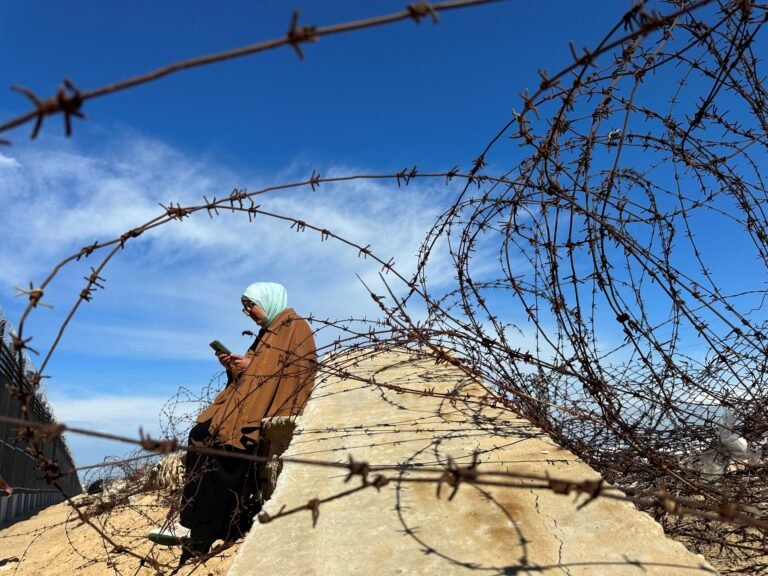Since October 7, 2023, the war of images has eclipsed the war of weapons. From Gaza’s pulverised hospitals and starving infants to mass graves and desperate fathers digging through rubble, every pixel captured on a smartphone strikes deeper than a missile.
These raw, unfiltered, and undeniable images have a far greater impact than any press conference or official speech. And for the first time in its history, Israel cannot delete them or drown them in propaganda.
The horrifying images of the Israeli army massacring people at aid distribution locations prompted newspaper Haaretz’s Gideon Levy to write on June 29: “Is Israel perpetrating genocide in Gaza? […] The testimonies and images emerging from Gaza don’t leave room for many questions.”
Even staunchly pro-Israel commentator and New York Times columnist Thomas Friedman no longer buys into the Israeli narrative. In a May 9 op-ed, addressed to US President Donald Trump, he declared: “This Israeli government is not our ally,” clarifying that it is “behaving in ways that threaten hard-core US interests in the region”.
Once, Israel’s narrative was protected by the gates of editorial rooms and the gravity of Western guilt. But the smartphone shattered those gates. What we see now is no longer what Israel tells us — it’s what Gaza shows us.
The platforms carrying these images — TikTok, WhatsApp, Instagram, X — don’t prioritise context; they prioritise virality. While older generations might look away, younger ones are glued to the stream of suffering, absorbed by every pixel, every siren, every moment of destruction. The global public is agitated, and this works against the Israeli interest. Israel is no longer just at war with its neighbours; it is at war with the lens itself.
The psychological toll of this visual war is reverberating deep inside Israeli society. For decades, Israelis were conditioned to see themselves as global narrators of trauma, not subjects of international scrutiny. But now, with videos of Israeli bombardment, flattened Gaza neighbourhoods, and emaciated children flooding every platform, many Israelis are grappling with a growing ethical predicament.
There is unease, even among centrists, that these visceral images are eroding Israel’s moral high ground. For the first time, public discourse in Israeli society includes fear of the mirror: what the world now sees and what Israelis are forced to confront.
Internationally, the effect has been even more destabilising for Israel’s diplomatic standing. Longstanding allies, once unconditionally supportive, now face growing domestic pressure from citizens who are not consuming official statements but TikTok’s live streams and Instagram’s image feed.
Lawmakers in Europe and North America are openly questioning arms shipments, trade deals, and diplomatic cover, not because of the briefings they have on Israeli war crimes but because their inboxes are flooded with screenshots of scattered body parts and starving children.
The battlefield has expanded into parliaments, campuses, city councils, and editorial rooms. This is the backlash of a war Israel cannot win with brute force. To regain control of the narrative, Israeli officials have pressured social media platforms to curb content they dislike. Yet even Israel’s most sophisticated public diplomacy efforts are struggling to keep pace with the virality of raw documentation.
Behind closed doors, the Israeli military is no longer merely worried about public relations; it is concerned about prosecution. The Israeli army has admonished soldiers for taking selfies and filming themselves demolishing Palestinian homes, warning that such material is now being harvested as evidence by international human rights organisations.
Footage and images from social media have already been used by activists to target Israeli servicemen abroad. In a number of cases, Israeli citizens have had to flee countries they were visiting due to war crimes complaints filed against them.
In the age of smartphones, the occupation is no longer just visible — it’s indictable.
In the past, Israel fought wars that it could explain. Now, it fights a battle it can only react to — often too belatedly and too clumsily. The smartphone captures what the missile conceals. Social media disseminates information that official briefings attempt to suppress. The haunting images, digitally preserved, ensure that we never forget any devastating atrocity, or act of brutality.
Images of conflict do not just convey information; they can also redefine our perceptions and influence our political positions. The powerful “Napalm Girl” photo that captured the aftermath of an attack by the US-allied South Vietnamese army on civilians during the Vietnam War had a profound impact on American society. It helped create a significant shift in public opinion regarding the war, accelerating the decision of the US government to end it.
Today, in Gaza, the stream of powerful images does not stop. Despite Israel’s best efforts, the global opinion is overwhelmingly against its genocidal war.
Smartphones have completely changed the nature of conflict by putting a camera in the hands of every witness. In this new era, Israel struggles to defeat the relentless, unfiltered visual record of its crimes that calls for justice.
The views expressed in this article are the author’s own and do not necessarily reflect Al Jazeera’s editorial stance.
